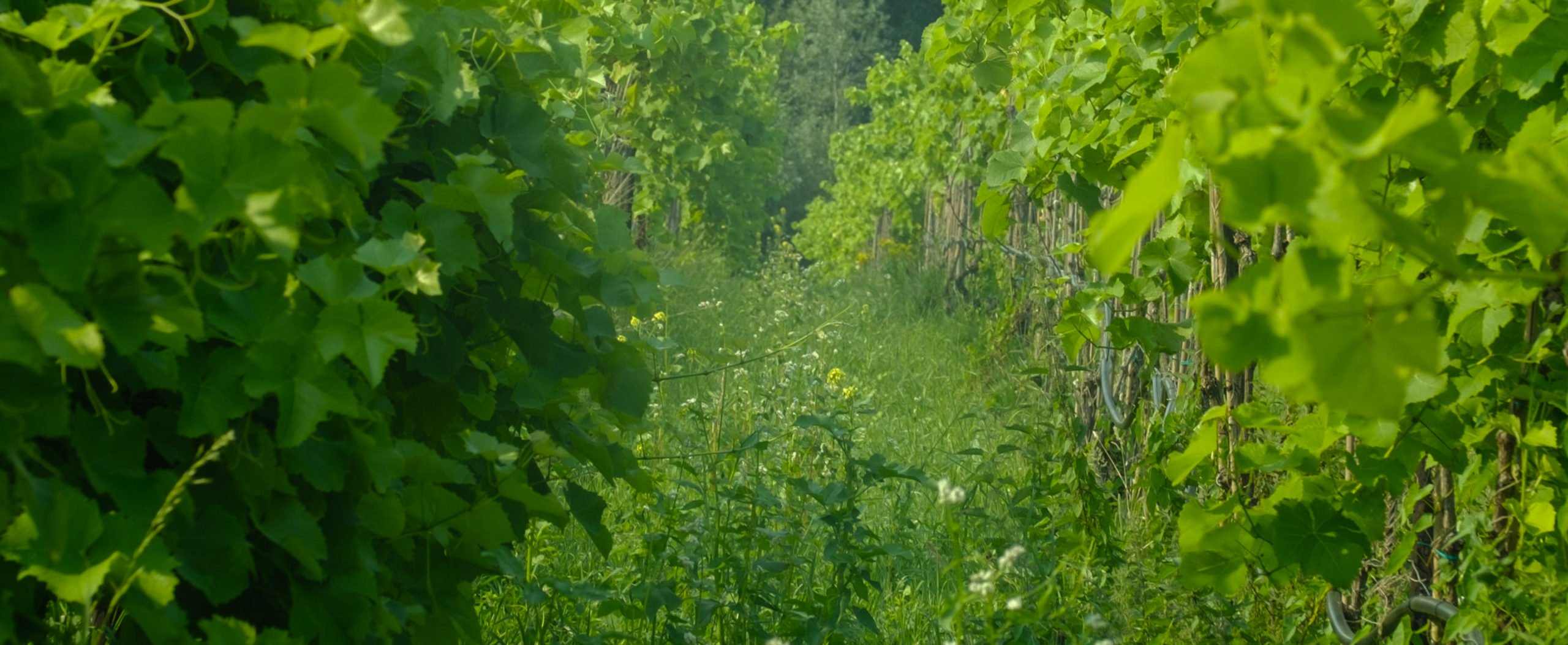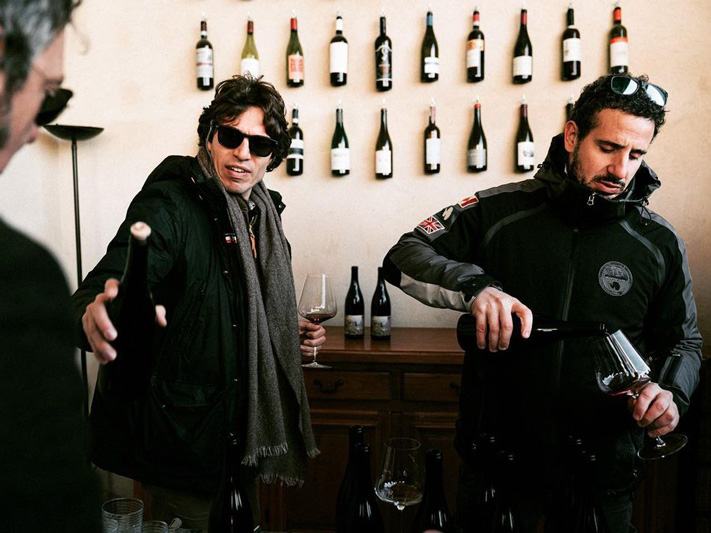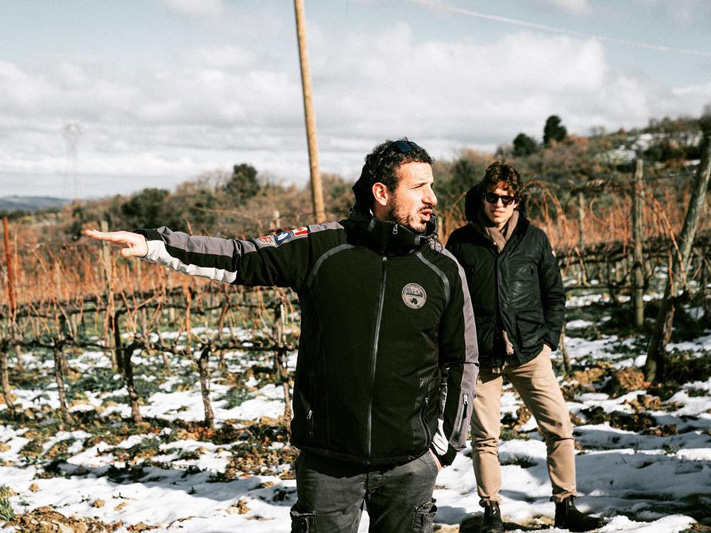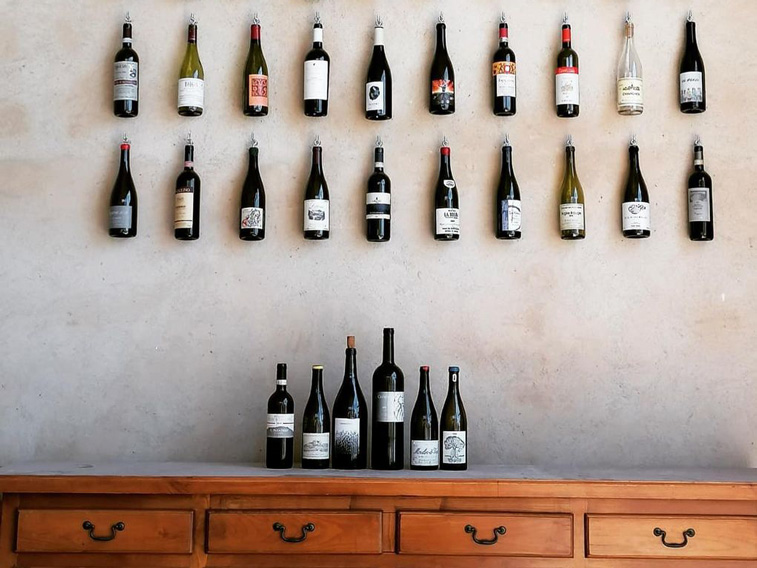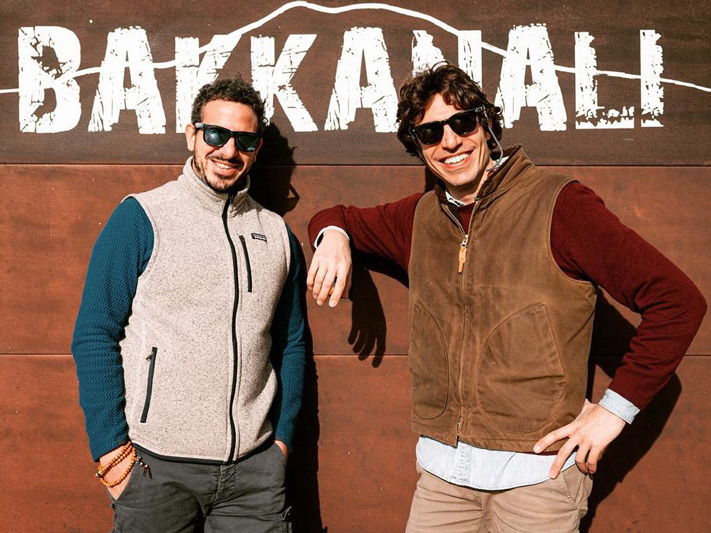Bakkanali
– Tuscany, Italy
A two-hour drive from Florence, we find Bakkanali. This is not your average Tuscan winery, as it is located on Monte Amiata, an ancient volcano that has been inactive for at least 180,000 years.
Previously, the mountain functioned only as a wall of protection from the bad weather, to which the hills of Montalcino owe its micro-climate. Nowadays, the mountain is finally getting the attention and appreciation it deserves.
Thanks to its high altitude–600-850 meters–cooler climate and special geological features, Sebastian Nasello–current cellar master at Podere Le Ripi–and Ugo Fabbri manage to create beautiful wines here with great respect for nature and the environment.
The two are still young but already possess bursting experience and are thoroughly motivated. Their love for wines from cold climates is almost tangible in the Sangiovese. Not long ago, they even planted Savagnin vines. Could it be Jura meets Tosacana? We are curious. For now, we’ll stay on the reds.
Tuscan wines are known for being very firm, high in alcohol, and always aged in oak. Sebastian and Ugo, however, ferment and age all their wines on stainless steel and sometimes concrete, with a relatively cool maceration time and partial whole-cluster fermentation. With a soil consisting of limestone, marl, schist volcanic silicates, and quartz, the area is a geologist’s dream.
When asked for their favorite cuvée, the distributor for Bakkanali said, by far, “Rosso,” a wine that evokes a sense of place for terroir and is a unique expression of a Tuscan red. The Sangiovese, grown at 700m above sea level on low PH soil, creates a wine with energetic freshness and minerality. This cuvée is fermented and aged on stainless steel, which whole-cluster fermentation. The fruit provides the typical flavor of ripe cherry, fresh red berries, and a hint of blood orange. Herbaceous and earthy, with aromas of crushed rocks and violets, becoming more floral and luscious the longer you let the wine breathe. It is a wine with both the structure and the lightness to carry a full dinner.
Cultivation: 4.5 Ha
Production: Rosso 12,000 bottles, Rosa 1,000 bottles, Kab 4,000 bottles
Varieties: Sangiovese, Cabernet Sauvignon, Savagnin Vert (this is newly planted, will give fruit in a couple of years)
Approach: Organic and in conversion to bio-dynamics
Certifications: N/A
Sulfites: Very low levels


